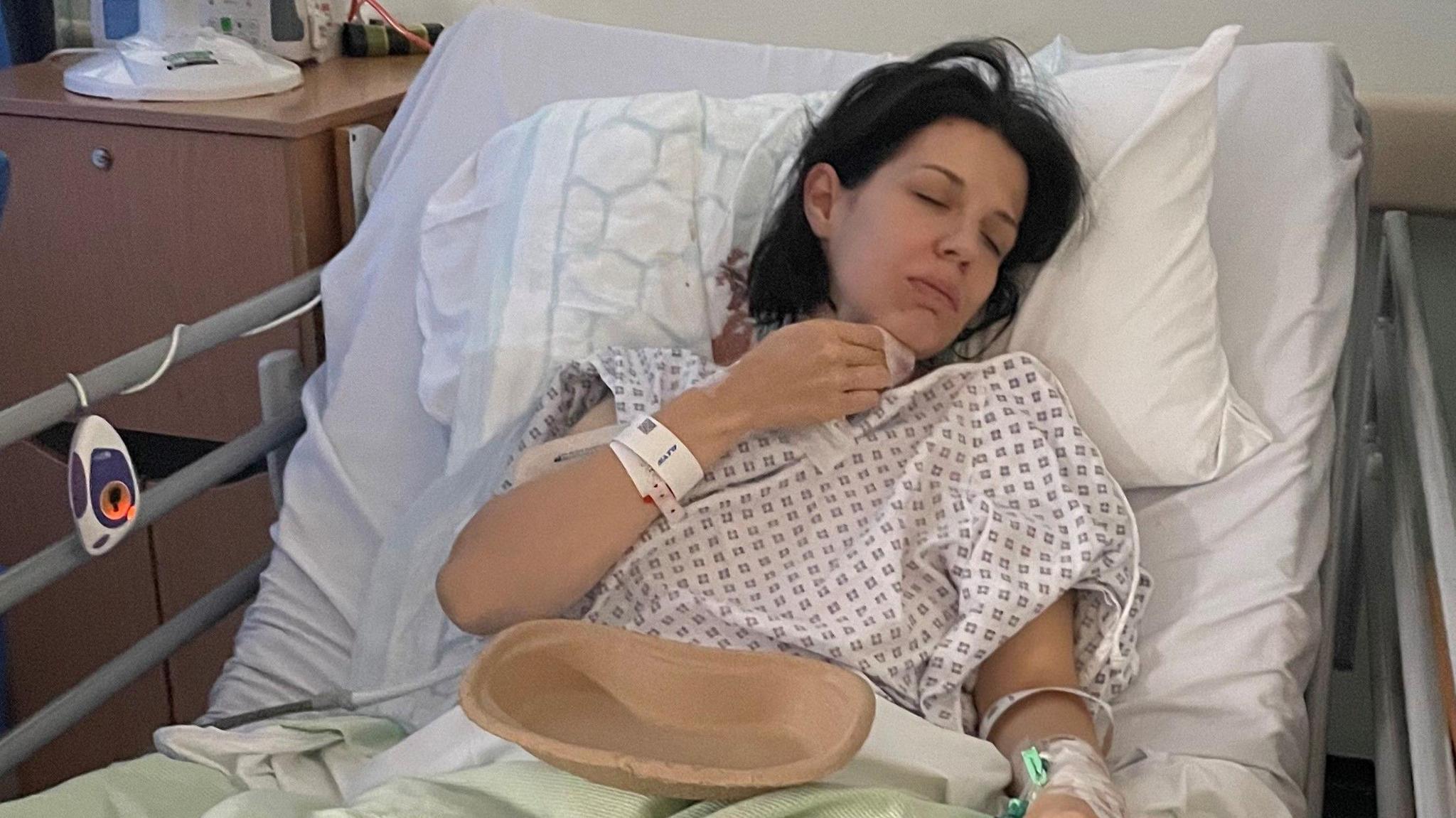Mum's brain surgery brings 'miracle' relief

Lydia Griffin said her headaches got worse and were accompanied by nausea and tinnitus, and her vision was affected
- Published
A mother-of-three said brain surgery had transformed her life after years of agonising headaches and fatigue.
Lydia Griffin, 33, from Halesworth in Suffolk, experienced symptoms from childhood, which she said were often dismissed by doctors.
She was later diagnosed with a rare condition called non-hydrocephalic symptomatic pineal cyst (nhSPC) syndrome.
After taking part in what experts called a "world-first study" in Cambridge, Mrs Griffin said her recovery was "like a miracle".

"I needed my life back to be able to look after my family," said Mrs Griffin
Pineal cysts are usually non-cancerous and rarely require surgery unless they cause fluid build-up in the brain.
However, the Cambridge study showed surgery could help patients that have the rare syndrome, which causes severe symptoms even without fluid build-up.
Mrs Griffin's symptoms began aged six and included severe headaches, nausea and fatigue, which she said were often dismissed by doctors.
An MRI found a large, benign pineal cyst, but her symptoms worsened in 2019.
After meeting consultant neurosurgeon Thomas Santarius, of Cambridge University Hospitals, she was diagnosed with nhSPC syndrome.
By August 2023, with her vision affected and the cyst grown to 30mm, she opted for surgery - a day-long procedure that brought almost immediate relief.
Mrs Griffin said she struggled to get doctors to take her condition seriously, but that changed when she met Prof Santarius, who "knew what was wrong".
"After all I'd been through it was like a miracle, and I can't thank Tom enough for that," she added.
"Just five or six days after the operation I started feeling better... the change was like day and night."
As part of the CamProS-PC study, between January 2019 and May 2024, Mr Santarius performed 40 surgeries on people with nhSPC syndrome.
He said: "This is a poorly understood and currently poorly managed condition and this study is a major step forward in the understanding of the role of surgery.
"However, many uncertainties remain and, as such, this condition is best managed in the context of a controlled clinical study."
More than 90% of patients reported improvements after surgery.
Researchers said more trials were needed, but the results offered hope.
A larger trial was planned to better understand the condition and the role of surgery in treating it.
Get in touch
Do you have a story suggestion for Cambridgeshire?
Follow Suffolk news on BBC Sounds, Facebook, external, Instagram, external and X, external.
Related topics
More like this story
- Published4 December 2024

- Published20 November 2024
